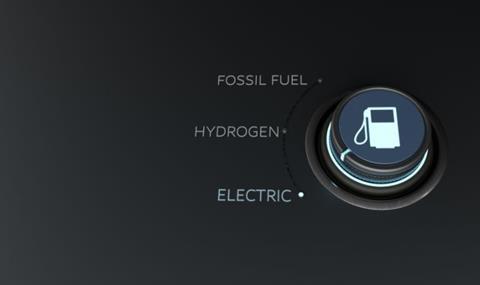
A range of the logistics sector’s leading operators have revealed the fuel they are most likely to adopt for long-distance heavy haulage in the future.
Questioned in MT's latest industry panel discussion, they largely agreed that a mix of solutions seemed most likely but raised concerns over significant barriers such as increased costs and lack of supporting infrastructure.
“Achieving sustainable change in the movement of long distance heavy freight isn’t something that will happen overnight,” said Dave Rowlands, fleet engineering director at Wincanton. “It will take time, energy and investment to get there. Wincanton has a clear roadmap of how we plan to achieve this change, looking at what we can do now and also planning for what we can achieve in the longer term.
“The most important thing to understand when it comes to looking at the future in the movement of goods is that there isn’t one all-encompassing solution, rather the future will involve a hybrid of different options to create the best outcome."
In the short term, Rowlands said Wincanton was focused on optimisation of existing assets: “By this we mean optimising fuel use through driver management and telematics and ensuring our fleets comply with existing regulations,” he explained. “Electric trucks are also an alternative to diesel up to 27 tonnes GVW and, whilst these vehicles are well understood and safe at present, there is room for improvement over the medium term to ensure batteries and charging points - as well as their energy outputs - are more suitable for longer distance journeys.
“Hydrogen will almost certainly come into play in the long term," Rowlands concluded, "and it represents an exciting, sustainable opportunity across the whole industry. There is still a lot of work to be done before we get there, things like infrastructure and safety in use are so important, and there are huge engineering issues to consider, but this is on our horizon for 2030 and beyond.”
ArrowXL chief executive Charlie Shiels revealed that the delivery specialist is talking to manufacturers about electric 7.5-tonners but that “the operational reality of this change is massive”.
Read more
- “An electric future? There’s no commercial argument…”
- Daimler/Volvo fuel cell joint venture a giant leap towards electric future
- Operators set to benefit from LNG market consolidation, says Gasrec
“It means a 50% reduced payload, costs up 50% and significant range limitation - 30% less than diesel,” he said. “Plus the electrical infrastructure changes required at our sites to overnight charge 30-plus 7.5-tonners are mind-blowing. Solutions will need to change on the future timelines. What suits 2022 to 2027 will change for 2027 to 2035.
“Hydrogen fuel cells feel a good longer-term solution – well established, lots of knowledge and lots of investment going into it. The downside is the expense. In the short term the pragmatic solution has to include HVO/biofuel.”
Cullimore MD Moreton Cullimore said the industry in general would at first have to embrace a combination of different options due to the many different types of work taken on by hauliers over very different geographical areas.
"For example here in Gloucestershire we are at the heart of five main valleys and two river sources which makes the topography and demands on a truck far more strenuous and varied," he explained. “In the short term I think some form of biofuel is the initial answer as it maintains the status quo. I personally don’t believe these big battery cells, with lithium mined in far flung countries, is the answer to the carbon problem. Surely the answer must be something that is locally sustainable. Otherwise, long term, I think hydrogen may be the answer again because it involves the least biggest change to the UK infrastructure.
"That said there are some pretty clever people in the world and it wouldn’t surprise me if, after another five-year of focus on alternative energy, someone hasn’t come up with an entirely new concept altogether.”
Meachers Global Logistics chairman Bob Terris said the future would probably be a mix of hydrogen and electric: “We are going electric on local delivery vehicles and we will wait and see regarding longer distance vehicles,” he added. “It’s difficult to anticipate the way it will go. No doubt hydrogen, electric and biofuel will be tried but the two I’ve chosen will prevail.”
Meanwhile Dan Myers, XPO MD UK and Ireland, said he company had already invested in e-vehicles and other alternative fuels. “Diesel will continue to be a part of our fuel mix, but we will work to reduce this," he said. "Longer term, we are excited about the potential that e-vehicles and other fuels such as hydrogen would play in long-distance heavy freight.”













